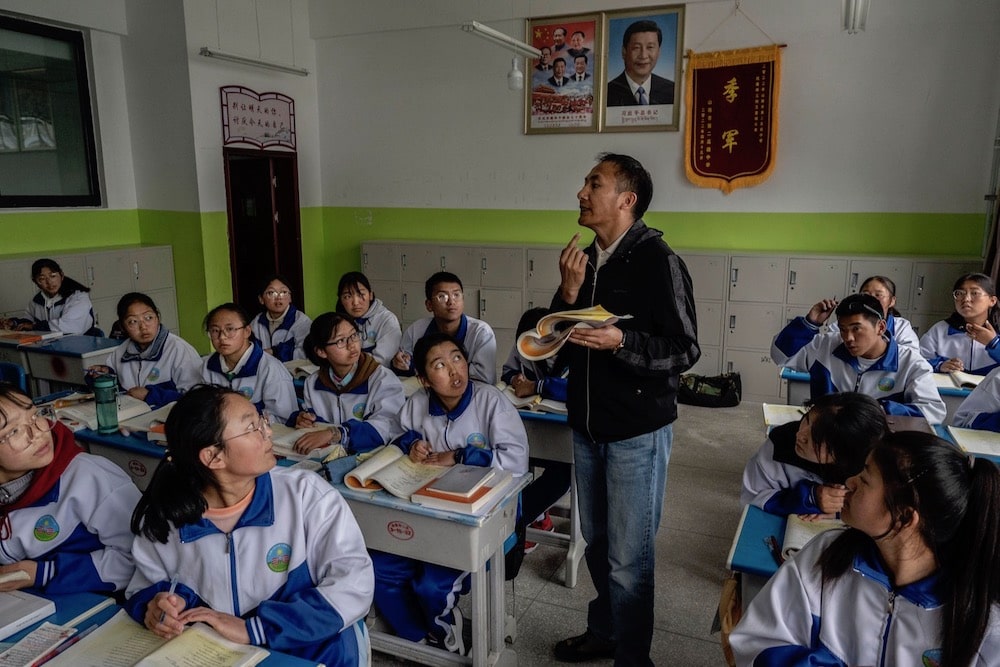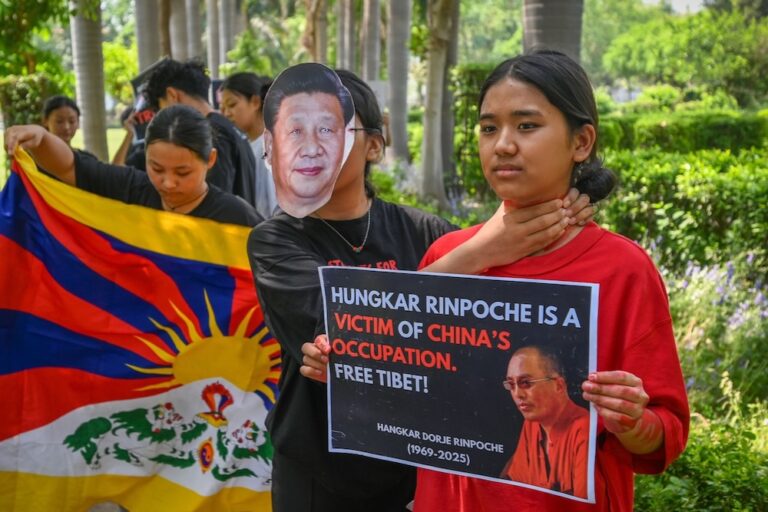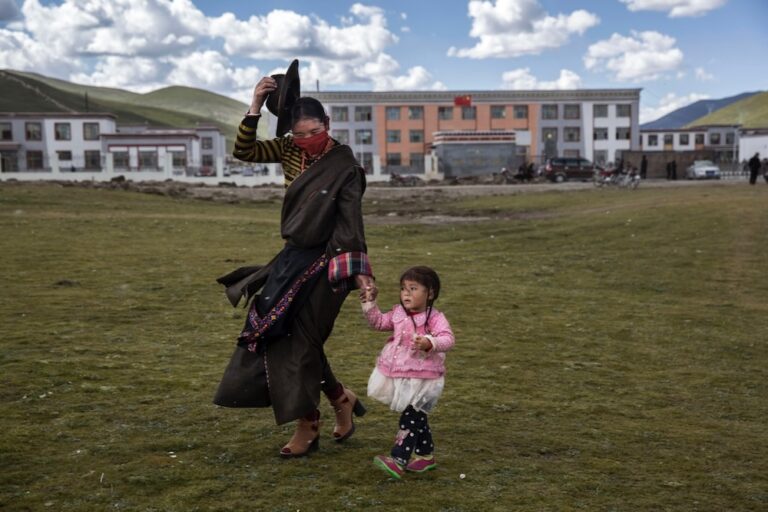A high-profile Tibetan language rights activist and blogger was assaulted in Qinghai province.
This statement was originally published on pen-international.org on 29 August 2023.
PEN International and the Tibetan Writers Abroad PEN Centre are concerned by recent reports that Tashi Wangchuk, a high-profile Tibetan language rights activist and blogger, has been assaulted in his hotel room by an unknown group of men. We condemn the attack and call for all perpetrators to be held to account.
According to an open letter written by Tashi Wangchuk that was circulated online, on 19 August he travelled to Darlak county in the Qinghai province to engage in language rights advocacy at a local school. While there, he posted a video of himself at the outside the school’s gate on his Douyin social media account.
In his letter, Tashi Wangchuk states that he was then followed by a car when he left the school and sought accommodation for the night. After he checked into a hotel room, several masked men forcibly entered his room and assaulted him. Following the attack, Wangchuk requested that the hotel staff call the police, who then arrived approximately an hour later and took Wangchuk in for questioning. After he left the police station, he was reportedly prevented from booking accommodation for the night at several hotels. He then travelled to a local hospital but was denied medical treatment, resulting in him spending the night on a hospital bench untreated.
‘This latest harassment of Tashi Wangchuk, a peaceful advocate for Tibetan language rights, is illustrative of the PRC government’s longstanding efforts to suppress the Tibetan language. We urge the authorities to carry out a full investigation and hold those responsible to account. We also call on the authorities to end their systematic efforts to undermine Tibetan language use.’, said Urtzi Urrutikoetxea, Chair of PEN International’s Translation and Linguistic Rights Committee.
Since Tashi Wangchuk was released from prison in January 2021 following a five-year sentence, he has been routinely subjected to arbitrary restrictions and intimidation tactics in an effort to prevent him from advocating for the use of the Tibetan language. This includes the removal of his blog from the Weibo social media platform in April 2021, shortly after he used his account to highlight the closure of Tibetan schools in Qinghai province. More recently, in January 2022 he was forcibly removed from his accommodation and taken to a police station where he was interrogated for several hours after he attempted to meet local officials as part of his advocacy efforts.
Background
Tashi Wangchuk is a long-standing Tibetan language rights advocate who has played a key role in drawing international attention to the role that the PRC government’s assimilatory language policies have had in eroding the use of the Tibetan language across the Tibet Autonomous Region and other areas with concentrated Tibetan populations. The government’s systematic efforts to degrade Tibetan language usage runs contrary to Article 4 of China’s constitution, which ensures ‘[e]thnic minorities’ right to learn, use and develop their own spoken and written languages is guaranteed in accordance with the law’. It also conflicts with China’s international human rights obligations, including Article 15 of the International Covenant on Economic and Social Rights, which decrees that China ‘must respect free access by minorities to their own culture, heritage and other forms of expression, as well as the free exercise of their cultural identity and practices’.
In November 2015, Tashi Wangchuk was featured in a New York Times documentary where he called for the protection and promotion of the Tibetan language. Just weeks after the documentary was published, Tashi Wangchuk was detained in secret and held for over two years in pre-trial detention on a charge of “inciting separatism”.
On 22 May 2018, following a trial lasting just four hours, Tashi Wangchuk was handed down a five-year prison sentence. His imprisonment was widely condemned by United Nations experts and NGOs, including the Independent Chinese PEN Centre, PEN America and English PEN, who campaigned for his release. On 28 January 2021, Tashi Wangchuk was released upon completion of his sentence.



